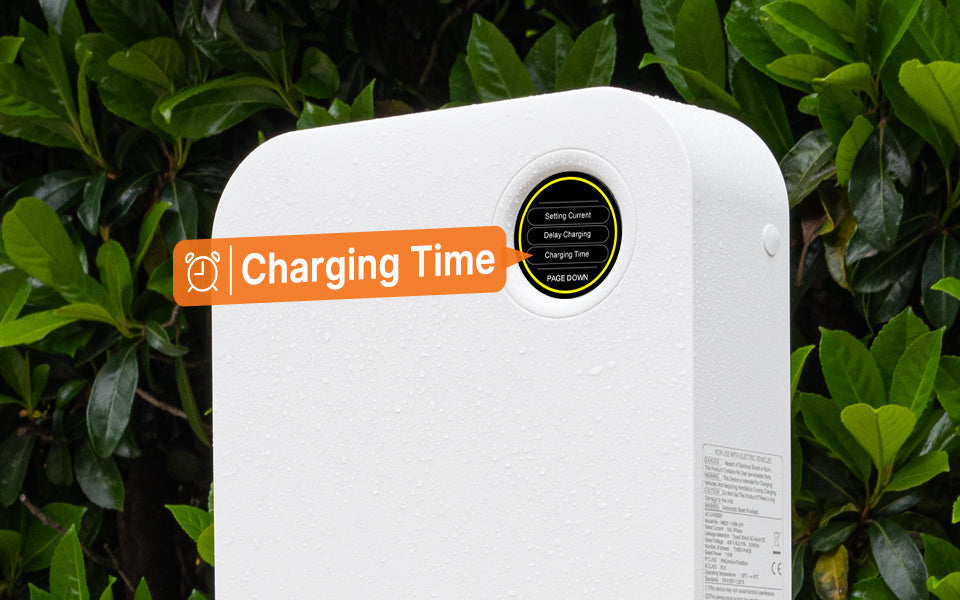EV ownership is rising fast—but what if you live in an apartment?
France is accelerating its transition to electric mobility, but many EV drivers live in shared residential buildings (copropriétés) and are left wondering:
“Can I install an EV charger in my own parking space?”
The answer is: Yes, absolutely.
French law recognizes your 'right to a socket' (Droit à la prise), allowing you to install a personal EV charger on your privately owned or rented parking space, even if it’s located in a shared underground garage.
✅What is the “Right to a Socket”? And How Do You Get Started?
French legislation gives every EV owner the right to install a charger on their private parking spot, even within shared residential buildings.
Here’s the basic step-by-step process:
1️⃣Notify the building management (syndic) in writing via registered letter (LRAR) about your intention to install an EV charger.
2️⃣Attach a technical proposal prepared by a certified IRVE electrician (IRVE = certified installer for EVSE).
3️⃣Wait 3 months: If no legal objection is raised (e.g., fire hazard, non-compliance with building regulations), you’re allowed to proceed with the installation.
📌Installation & electricity contract: Hire an IRVE-certified electrician to carry out the installation. You’ll also need a separate electricity meter and contract, so your charging cost is billed directly to you.
Qualifying projects are also eligible for the French Advenir subsidy program, offering installation incentives.
✅How to Choose the Right EV Charger for Apartment Use?
Choosing the right EV charger is essential for safe, efficient, and cost-effective EV charging in an apartment environment. Focus on two key aspects:
📶1. Power Level Selection
3.7 KW Portable EV Charger: Ideal for light users or short daily commutes with overnight charging.
7.4 KW EV Charging Station: Most popular choice—sufficient for overnight full charges and compatible with most single-phase apartment circuits.
11 KW (Three-phase) Wallbox Charger: For faster charging, but only suitable if your building supports a three-phase connection (less common in apartments).
📌Simple guideline:
Occasional use, slow charging →3.7 KW
Daliy use, full overnight charging → 7.4 KW
Fast charging, large battery → 11 KW (if available)
📶2. Do You Need Smart Features?
Smart chargers are becoming increasingly popular—especially in apartment settings where control and optimization matter more.
Smart features include:
App control: Start/stop charging remotely, record charging data, Timed & Delay charge(Charge during off-peak hours to lower your electricity bill).....
RFID control: Only authorized users can charge, keeping your charger secure;
Dynamic load balancing: Prevents electrical overload by adjusting charging power based on your home’s current usage—particularly useful in older apartment buildings.
See More: 👆
Smart features are not mandatory, but they significantly enhance the user experience, increase energy savings, and ensure safer use in limited power environments.
📌Installation Cost & Subsides:
Typical installation costs for a home EV charger in an apartment are different, depending on cable distance, electrical modifications, and smart features.
Thanks to the Advenir national subsidy, eligible installations can receive up to €960 in financial aid, provided that:
- An IRVE-certified electrician is used
- The charger meets national and EU compliance standards
- Proper documentation (invoice, installation report) is submitted
✅Frequently Asked Questions (FAQ)
Q: What if my neighbors or building manager object?
A: You only need to notify—not request permission. As long as your setup complies with technical standards, others cannot legally block you. The “right to a socket” is protected by law.
Q: Will the charging cost be mixed with the building's electricity bill?
A: No. The charger will be installed with its own meter and electricity contract, billed directly to you.
Q: I rent my parking space—can I still install a charger?
A: Yes, provided you have the owner’s written permission and a long-term rental agreement. The right to install still applies.
✅ Conclusion: Yes, You Can Charge Your EV at Home—even in an Apartment
Owning an EV in a shared residential building is no longer a barrier to private charging.
As long as you have a private parking space, you can legally install a personal charger. By selecting the right power level and deciding whether smart features are worth the investment, you can enjoy all the benefits of fast, reliable, and cost-efficient home charging.
Even better, the government will likely help cover a big chunk of the cost!



